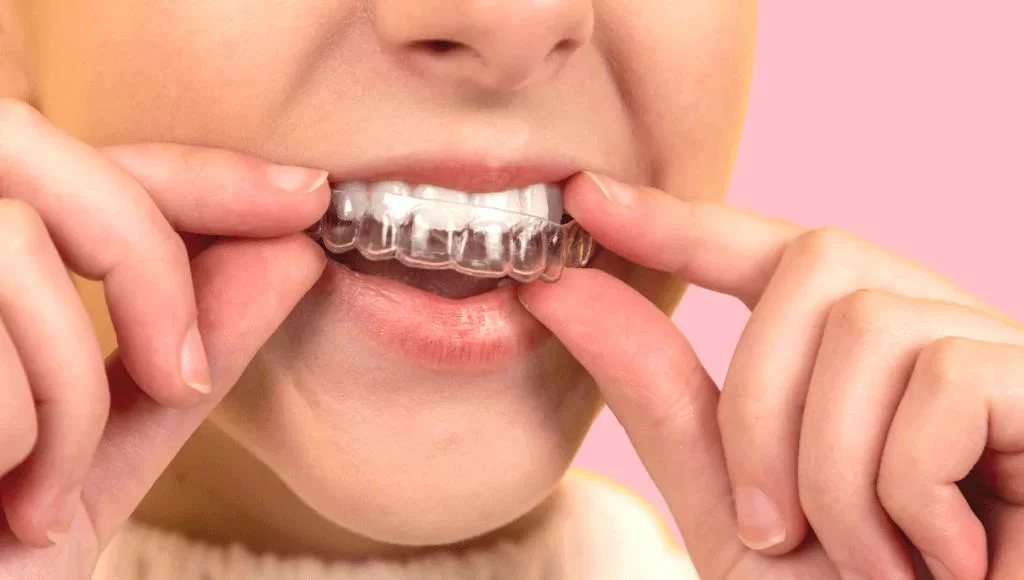
Signs of Teeth Grinding and How to Prevent It – Effective Solutions for Bruxism
- 1. Recognizing the Signs of Teeth Grinding
- 2. Common Causes of Teeth Grinding
- 3. Health Risks of Teeth Grinding
- 4. How to Prevent Teeth Grinding
- 5. Treatment Options for Bruxism
- 6. Dental Care Tips for People with Bruxism
1. Recognizing the Signs of Teeth Grinding
Teeth grinding, also known as bruxism, is a common condition where people unconsciously grind or clench their teeth, especially at night. It can often go unnoticed until significant damage occurs. Recognizing the signs early is essential to preventing long-term dental issues. Common signs of teeth grinding include:
- Sore jaw muscles: One of the first signs is pain or tightness in the jaw, especially upon waking up. This can be a result of the constant pressure applied during grinding.
- Worn-down teeth: Excessive grinding can wear down the enamel, leading to flattened or chipped teeth.
- Headaches: People with bruxism often experience frequent headaches, particularly in the temples, due to the strain on the jaw muscles.
- Tooth sensitivity: Grinding can expose the softer part of your teeth, making them more sensitive to hot and cold foods or drinks.
- Disrupted sleep: Grinding often occurs during sleep, and it may disturb your partner or cause you to wake up feeling unrested.
2. Common Causes of Teeth Grinding
Teeth grinding can have several causes, from stress to underlying health conditions. Here are the most common reasons people grind their teeth:
- Stress and anxiety: Emotional stress is one of the most common causes of teeth grinding. People who are under stress may unconsciously clench their teeth as a way to cope with tension.
- Sleep disorders: Conditions like sleep apnea, where breathing is interrupted during sleep, can increase the likelihood of grinding teeth.
- Misaligned teeth: A misaligned bite or crooked teeth may cause people to grind their teeth as they subconsciously try to align their teeth while chewing or sleeping.
- Certain medications: Some medications, especially antidepressants, have side effects that include teeth grinding or jaw clenching.
- Excessive alcohol or caffeine consumption: Both alcohol and caffeine can heighten stress and disrupt sleep, making teeth grinding more likely.
3. Health Risks of Teeth Grinding
If left untreated, teeth grinding can lead to significant health problems. Not only does it cause tooth wear and sensitivity, but it can also result in:
- TMJ disorders: The temporomandibular joint (TMJ) can become inflamed from excessive grinding, leading to jaw pain and difficulty moving the jaw.
- Tooth damage: Chronic grinding can cause teeth to crack, chip, or even break. This can lead to expensive dental procedures.
- Gum recession: The pressure from grinding can contribute to gum recession, which exposes tooth roots and increases sensitivity.
- Increased risk of tooth decay: Worn-down enamel is more susceptible to cavities and decay, making regular dental care essential for those with bruxism.
4. How to Prevent Teeth Grinding
Prevention is key when it comes to protecting your teeth from the harmful effects of grinding. Here are some strategies to help reduce or stop bruxism:
- Manage stress: Since stress is a major trigger for teeth grinding, it's important to find ways to manage it. Regular exercise, mindfulness practices like meditation, and therapy can all be effective ways to reduce stress.
- Wear a nightguard: A custom-fitted nightguard can help protect your teeth from the damage caused by grinding. Dentists can create a guard that fits comfortably in your mouth while you sleep.
- Avoid stimulants: Reducing or eliminating the consumption of caffeine and alcohol, particularly before bed, can help prevent grinding during sleep.
- Practice relaxation techniques: Before bed, consider engaging in calming activities such as reading, taking a warm bath, or practicing deep breathing exercises to relax your jaw and body.
5. Treatment Options for Bruxism
If you're already experiencing the effects of teeth grinding, several treatment options can help address the issue:
- Dental treatment: Your dentist may recommend crowns, dental bonding, or veneers if you've suffered significant tooth wear from grinding.
- Physical therapy: If grinding has caused jaw pain, physical therapy may help alleviate muscle tension and improve jaw function.
- Medications: In some cases, medications such as muscle relaxants may be prescribed to relax the jaw muscles before sleep.
- Cognitive behavioral therapy (CBT): CBT can help address underlying stress or anxiety issues that may be contributing to bruxism.
6. Dental Care Tips for People with Bruxism
For individuals who suffer from bruxism, maintaining good dental care is crucial to minimize the effects of teeth grinding. Here are some dental care tips to follow:
- Regular dental check-ups: Visit your dentist regularly for check-ups and cleanings to monitor any damage caused by grinding and receive treatment as necessary.
- Strengthen your teeth: Using fluoride toothpaste can help strengthen your enamel and protect your teeth from the effects of grinding.
- Use desensitizing toothpaste: If your teeth are sensitive due to grinding, consider using toothpaste designed for sensitive teeth to reduce discomfort.
If you're looking for effective solutions to prevent or treat bruxism, Dentistry Toothtruth offers a variety of products and dental advice tailored to individuals dealing with teeth grinding. Discover more about how to protect your teeth and improve your overall dental health.







 Integrated Dental4.0 (189 review)
Integrated Dental4.0 (189 review) Dr. Anna Morrison5.0 (3 review)
Dr. Anna Morrison5.0 (3 review) Malinowski & Sefcik5.0 (8 review)
Malinowski & Sefcik5.0 (8 review) Dental365 - Bellmore4.0 (318 review)
Dental365 - Bellmore4.0 (318 review) Day and Night Dental5.0 (68 review)
Day and Night Dental5.0 (68 review) Dr. Kwon Pediatric Dentistry Sedation Center4.0 (133 review)
Dr. Kwon Pediatric Dentistry Sedation Center4.0 (133 review) The Importance of Oral Health Education During Pregnancy for a Healthy Pregnancy
The Importance of Oral Health Education During Pregnancy for a Healthy Pregnancy Best Tips for Brushing Your Teeth Properly for Healthy Gums: Essential Techniques for Oral Health
Best Tips for Brushing Your Teeth Properly for Healthy Gums: Essential Techniques for Oral Health Why Skipping Dental Checkups Can Lead to Bigger Oral Health Problems
Why Skipping Dental Checkups Can Lead to Bigger Oral Health Problems Advantages of Porcelain Dental Restorations
Advantages of Porcelain Dental Restorations How Can Diabetes Cause Tooth and Gum Problems? Preventing and Managing Oral Health Issues
How Can Diabetes Cause Tooth and Gum Problems? Preventing and Managing Oral Health Issues Healthy Habits for Promoting Good Oral Health and Hygiene: Tips for a Healthy Smile
Healthy Habits for Promoting Good Oral Health and Hygiene: Tips for a Healthy Smile